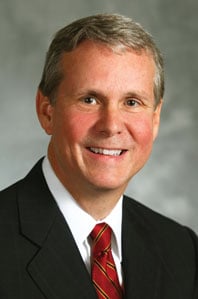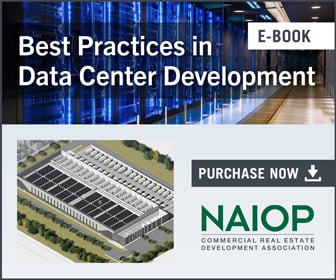CEO on Leadership: J. Dwight Bell, President and CEO, Cannon Equities
The president of an Atlanta-based diversified investment and development company offers his perspectives on the industry.
IN 1981, STRAIGHT OUT of college, J. Dwight Bell got a job with Coldwell Banker Commercial, the predecessor of CBRE, working on the brokerage side of the business. He quickly moved to the development side, because he has always been intrigued with real estate development and the process of constructing buildings. From Coldwell Banker, Bell went to work for several local development companies.

J. Dwight Bell
In the late 1980s, he joined Hines, where he remained until he founded Boss Properties with a partner in the 1990s. When his partner left the company in 2001, Bell created his own platform, Cannon Equities. The firm specializes in both commercial and residential institutional-grade real estate. Bell is also director, asset management, for EcoMetrix Environmental Management LLC, a full-service sustainability and energy consulting company.
Development: As CEO, what are your core areas of focus?
Bell: I focus on our capital partners, investors and lending relationships. I also focus on projects we have in the pipeline, and I generally oversee the execution of the projects we have underway, although we have a lot of good people on our team.
Development: What qualities do you look for when hiring senior staff?
Bell: The most important skill is project management, followed by attention to detail, because we have a lot of moving parts. A third quality is people skills. We want people who can work well with other people and can motivate and incentivize them to get their work done.
Development: Tell us about your commitment to sustainable development and your founding of EcoMetrix Environmental Management.
Bell: In addition to employing good real estate practices, we are primarily committed to two things: we want to create a positive impact on the communities in which we work, and we have a strong commitment to sustainability. In the early days of sustainability and LEED certification, we decided to get into that space and make our own projects sustainable.
At the same time, we decided to offer our services to other real estate developers and owners with a platform that presents a strong business case for being sustainable. We spend a lot of time looking at return on investment, at both the tangible and intangible benefits of being sustainable. The good news is that if you are reducing operating expenses by reducing energy and water usage, you are also being sustainable.
Development: What economic or market indicators do you track on a regular basis to keep up with the industry?
Bell: On a macro level, we track interest rate and cap rate trends. Certainly on a macro level, we follow politics: what’s going on in the world that is affecting our industry. At the local level, we are very much focused on fundamentals such as supply and demand dynamics.
Development: Over the next 18 months, what challenges and opportunities do you see for the commercial real estate industry?
Bell: We see challenges and opportunities from changing demographics and technology. We are looking closely at what real estate products people want, and we are looking closely at how buildings are operated and the types of technology we need to put in them. Clearly, one of the big moves is to wireless technology. This is very different today than it was just two or three years ago.
Development: Looking out three to five years, what do you see on the horizon that will impact the industry? What are you doing today to prepare for those challenges?
Bell: We are certainly looking at the leadership in Washington. The Trump administration has promised large infrastructure spending to the tune of $1 trillion, major tax reform and other pro-growth programs. This could have a major positive impact on commercial real estate.
Development: How has the industry changed during your career?
Bell: The industry has grown tremendously, and the number and types of players have changed. When I started out in the business, life insurance companies and pension funds were the major players. Now there are many, many more funds that are active. The biggest sea changes in my career involve technology and demographics, which are changing the way we approach real estate.
Development: What is the most valuable lesson you’ve learned over the course of your real estate career?
Bell: The major lesson I have learned is that no matter how blue the sky looks on the day you initiate a real estate deal, everything can change rapidly. Because of the time most deals take, it is impossible to know what will happen between the time you put a deal together and the targeted stabilization of the property. Therefore, you must underwrite all projects carefully and conservatively. We are very conservative in how we underwrite deals, and we are very conservative in our market assumptions going forward. This philosophy has served us well, given the uncertainty of the real estate business.
By Ron Derven, contributing editor, Development




